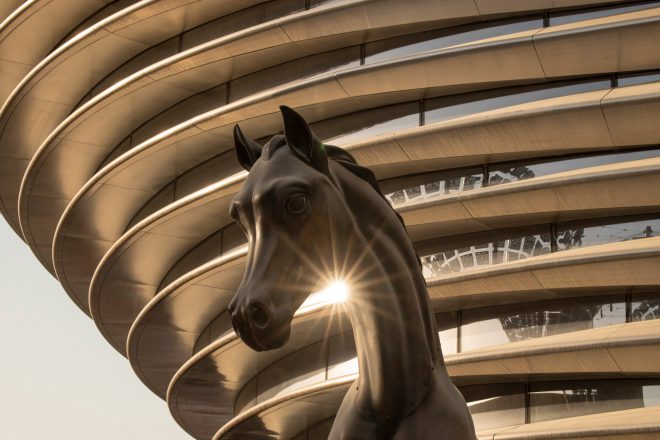Horses have been living alongside humans for thousands of years, with the earliest signs of them coming in Paleolithic cave art drawings.
At what point did we start looking at them as a mean of transportations and for carrying out other activities?
The Early History of Humans and Horses
At first, wild horses roamed around parts of Eurasia. However, they were largely seen as sources of food and were hunted by humans. There is no clear moment in history that we can point to as when these animals were domesticated. It is likely that different cultures gradually domesticated horses in varying ways, meaning that there is no single date when this happened.
One period that stands out is around 2000 BCE, which is when we can see the first evidence of horses being used to pull chariots during burials. It seems likely that the domestication process had begun long before this. One of the reasons it is so difficult to place a date on it is that all current wild horses are actually descendants of domesticated horses that escaped at some point.
The Eurasian Steppes region is typically mentioned as being the place where this transition from wild animal to domestic animal helped probably occurred. The Botai people are often looked upon as being the first culture to train and use horses, possibly 5,000 years ago, although it has been impossible to confirm this to date.
The Uses for Domesticated Horses
At first, keeping them as farm animals for easy access to their meat was an obvious use for domesticated horses. Yet, it probably didn’t take people too long to understand that these fast, powerful beasts could be used for tasks ranging from farm work to pulling chariots.
One of the major uses of these animals was in warfare. In fact, it is safe to say that the ability of humans to use horses in battle and to carry supplies changed the course of warfare over the centuries.
Their use as a means of transportation was likely to have been discovered by humans very easily. Strong, fast, and reliable, for many centuries they offered us the speediest and safest way of getting from one place to another, with a minimum of fuss and relatively little maintenance needed.
These animals were our best method of transportation throughout antiquity, when European explorers travelled to the Americas, and right up until deep into the Industrial Revolution. It was only in the early 20th century that motorized vehicles including automobiles like the Ford Mobile T saw horses finally replaced as our main way of getting around and moving heavy objects.
Other Uses for Horses
The value that humans place on horses can clearly be seen in the fact that they have been present in sporting events throughout history. It appears that we started using them for sport not long after domesticating them, as evidence can be seen of games being carried out in various parts of the world.
Horse racing has traditionally been a prestigious sport, leading to it being called the sport of kings. Some sources state that the first races probably took place in Central Asia around 4500 BCE, when nomadic tribes would arrange races.
The Roman and Greek cultures also placed a huge amount of importance on horse-based events such as chariot races and horseback riding.
As with the use of these animals as a means of transportation, their use in sports travelled across the globe and become firmly entrenched in just about every culture.
Today, there are very few parts of the world where horses aren’t still a part of the culture, either for their working potential or in the form of sporting events like the Kentucky Derby, the Dubai World Cup, or sports like Buzkashi in Central Asia. In the USA, famous racetracks like Del Mar and Santa Anita Park became part of the country’s landmarks.
Nowadays, with the inclusion of other kinds of transports, like cars, trains and planes, horses became obsolete as means of transport, but they are still useful in small towns.
Technology will continue to give us new options for getting around more quickly. Yet, the timeless allure of horses should ensure that they remain an important part of our world for the foreseeable future.

